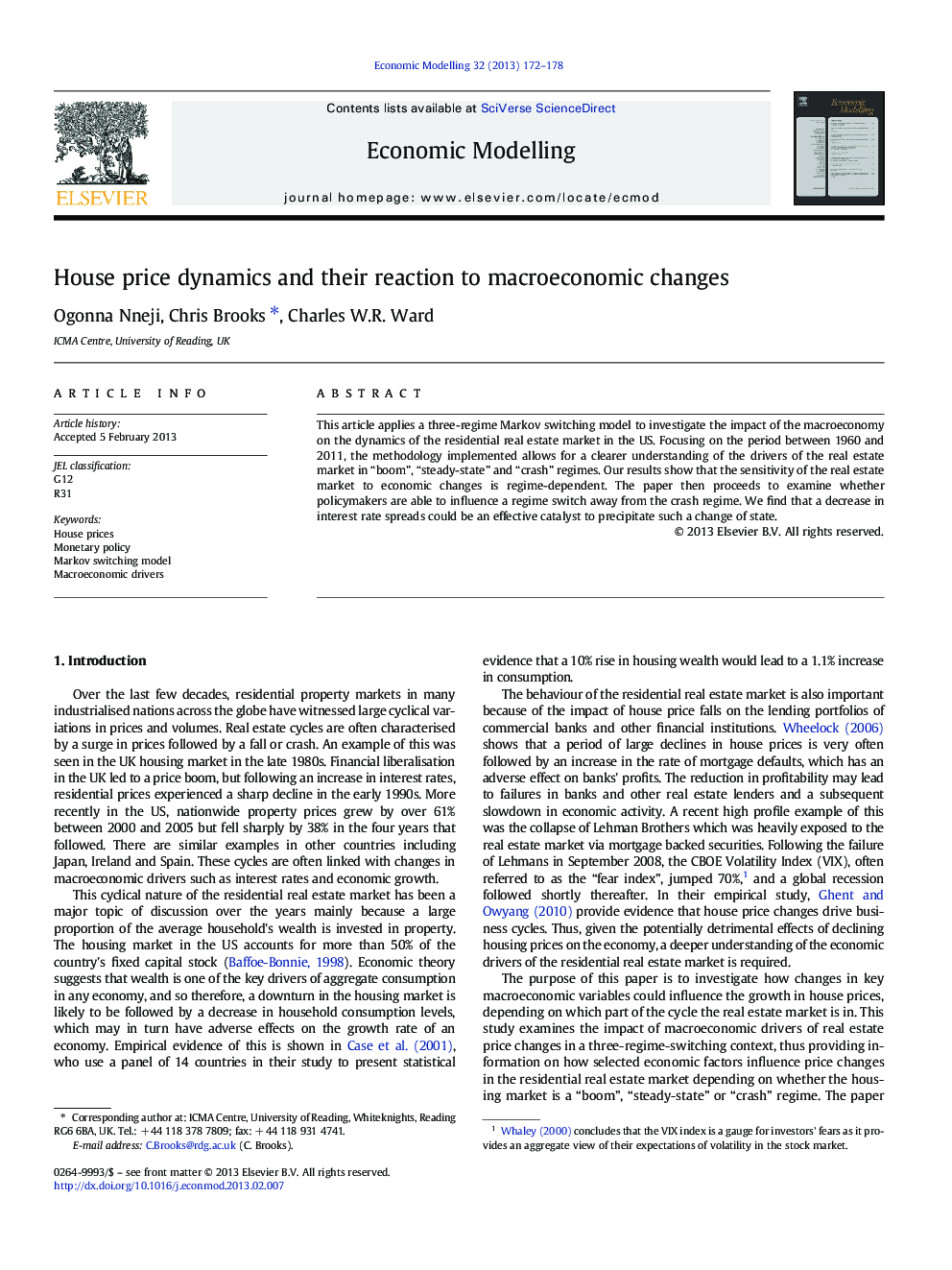| Article ID | Journal | Published Year | Pages | File Type |
|---|---|---|---|---|
| 5054900 | Economic Modelling | 2013 | 7 Pages |
Abstract
This article applies a three-regime Markov switching model to investigate the impact of the macroeconomy on the dynamics of the residential real estate market in the US. Focusing on the period between 1960 and 2011, the methodology implemented allows for a clearer understanding of the drivers of the real estate market in “boom”, “steady-state” and “crash” regimes. Our results show that the sensitivity of the real estate market to economic changes is regime-dependent. The paper then proceeds to examine whether policymakers are able to influence a regime switch away from the crash regime. We find that a decrease in interest rate spreads could be an effective catalyst to precipitate such a change of state.
Related Topics
Social Sciences and Humanities
Economics, Econometrics and Finance
Economics and Econometrics
